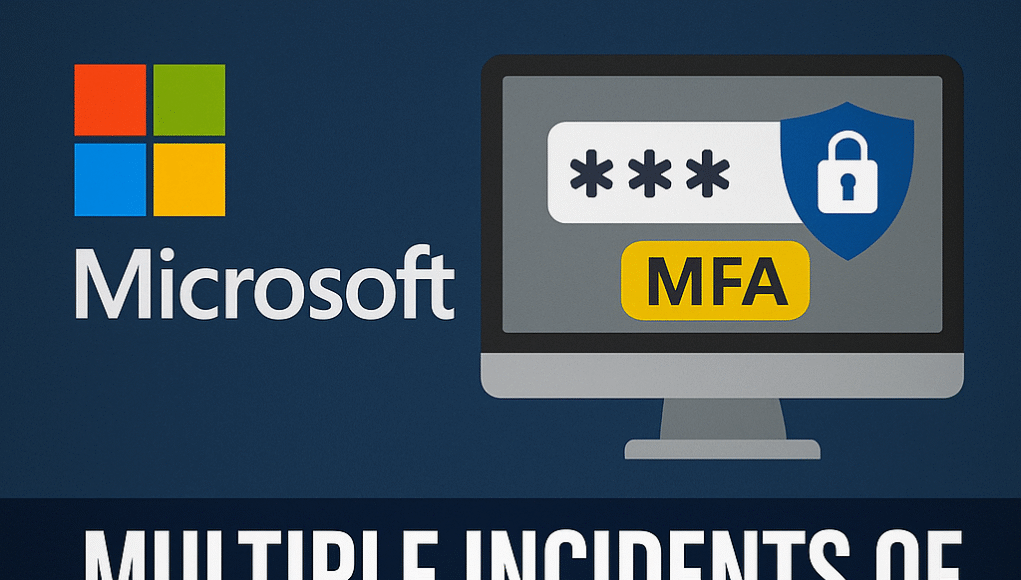Global | Cybersecurity Desk:
In a troubling development for enterprise security, several cybersecurity firms have reported multiple incidents involving the bypassing of Microsoft’s Multi-Factor Authentication (MFA) systems. These attacks, which have affected organizations across various sectors, exploit token replay and session hijacking techniques, raising serious concerns about the resilience of MFA implementations in Microsoft environments.
According to recent reports from security researchers, attackers are leveraging stolen session tokens to gain unauthorized access to Microsoft 365 accounts, even when MFA is enabled. These incidents typically begin with phishing campaigns that trick users into entering their credentials on fake Microsoft login portals. Once credentials are captured, attackers use advanced adversary-in-the-middle (AiTM) toolkits to intercept and reuse authentication tokens.
Microsoft has acknowledged the rise in such incidents and reiterated the importance of using phishing-resistant MFA methods, such as FIDO2 security keys or certificate-based authentication. However, many organizations continue to rely on traditional methods like SMS or app-based codes, which are increasingly vulnerable to sophisticated attacks.
Cybersecurity analysts recommend that organizations:
Implement conditional access policies and risk-based authentication. Regularly review token expiration policies. Employ continuous monitoring to detect anomalies in session behavior. Educate users on identifying phishing attempts and suspicious login activities.
These incidents highlight the evolving nature of cyber threats and the need for enterprises to continually update their security posture. While MFA remains a crucial layer of defense, these recent bypass incidents underline that not all MFA implementations offer the same level of protection.
Security experts warn that as attackers grow more capable, reliance on outdated or less secure MFA technologies can become a critical vulnerability rather than a safeguard.









